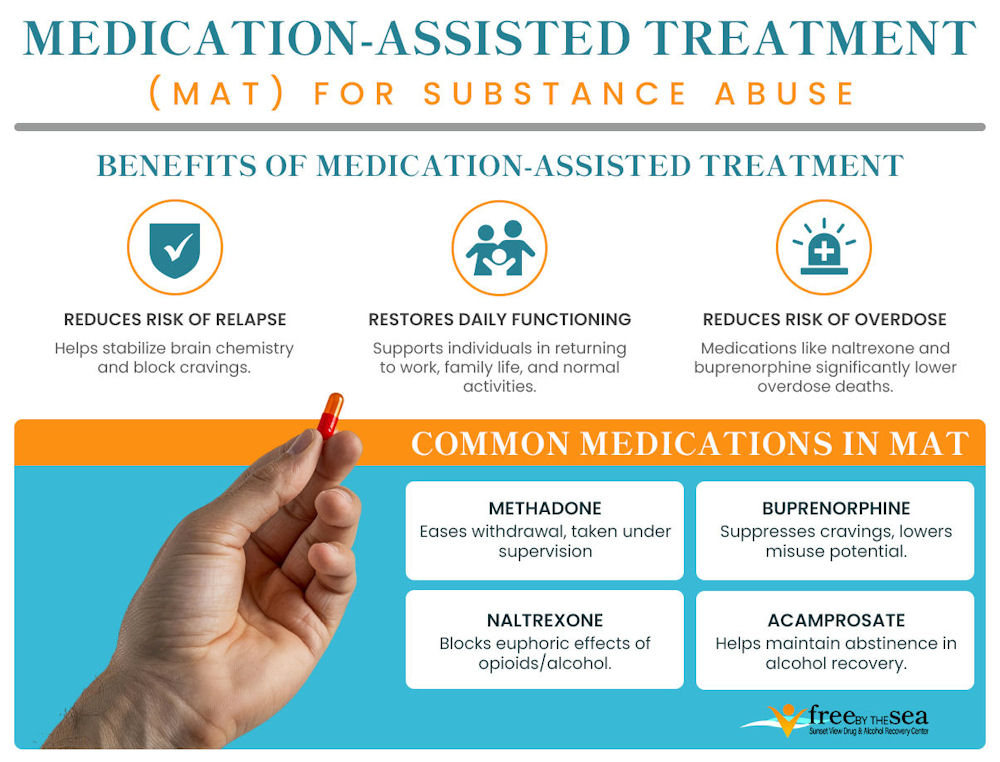A Comprehensive Guide to Substance Abuse Rehabilitation
Substance Abuse rehab, frequently referred to as rehab, is an organized procedure developed to help people overcome dependence on medications, alcohol, or various other habit forming compounds. It is not simply concerning detoxing-- it is a trip of psychological, emotional, and physical transformation. Rehab centers provide safe settings where people can challenge the source of their dependency, address mental triggers, and discover dealing systems to suffer long-term sobriety. This procedure is led by qualified specialists, including therapists, clinical physicians, and therapists that comprehend the intricate nature of dependency as both a behavioral and physiological problem.
Recognizing the Core of Substance Abuse Abuse Rehab
At its core, rehabilitation has to do with rebuilding an individual's life. Dependency often leaves behind deep scars-- stretched relationships, financial distress, illness, and mental illness. Through thorough rehabilitation programs, people are provided the devices to fix these elements slowly. Rehab isn't simply concerning staying away from materials; it has to do with redeeming control and finding one's sense of self-respect. The programs stress framework, consistency, and individual responsibility, which are crucial to long-term recuperation success. Every little landmark during rehab acts as a foundation for lasting sobriety.
Additionally, Substance Abuse recovery is not a one-size-fits-all technique. It recognizes that everyone's dependency story is unique-- what resulted in Substance Abuse misuse, just how it progressed, and how healing can be continual differ extensively. Therapy centers customize treatment strategies based on private analyses, guaranteeing that every patient obtains assistance that aligns with their emotional state, dependency background, and life situations. This customized technique substantially improves healing outcomes and aids avoid relapse once individuals rehabilitate right into everyday life.
The Advantages of Inpatient Rehabilitation Programs
Inpatient rehab, also referred to as property treatment, provides one of one of the most efficient techniques for those battling severe Substance Abuse dependency. One of its key benefits is the distraction-free and structured setting. When a person enters an inpatient facility, they are temporarily eliminated from outside triggers-- such as friends who make use of compounds, difficult work environments, or household conflicts-- that might impede their recuperation. This isolation from unfavorable influences allows clients to concentrate entirely on healing. Living within a encouraging and monitored setup creates the security required to damage old habits and develop much healthier patterns of actions.
One more significant advantage of inpatient rehab is the 24/7 specialist guidance readily available to each person. Withdrawal signs from medicines or alcohol can be unforeseeable and, sometimes, deadly. Inpatient facilities have clinical teams that provide continuous treatment, guaranteeing individuals are comfy and risk-free during detoxing. Beyond physical health and wellness, constant guidance likewise offers emotional confidence-- clients understand that aid is available at any time, which decreases anxiety and constructs count on in the healing process. This immediate accessibility to medical and mental support significantly enhances the success rate contrasted to outpatient treatment for extreme dependencies.
Inpatient rehabilitation programs promote a solid sense of neighborhood and responsibility. People engage with others who share comparable struggles, take part in group therapy, and participate in activities that motivate synergy and empathy. This setting nurtures mutual understanding and lowers feelings of seclusion commonly associated with addiction. By attaching with peers and learning from their experiences, people establish social bonds that remain to sustain them also after leaving the facility. This sense of belonging, incorporated with constant professional advice, makes inpatient rehab an extremely efficient foundation for sustainable recuperation.
Inpatient Rehab Solutions Used
Inpatient recovery centers use a diverse series of services made to treat the mind, body, and spirit simultaneously. The initial stage usually involves clinical detoxing, a process that securely eliminates substances from the body while taking care of withdrawal signs and symptoms. Detox is overseen by doctor who might provide medication to reduce discomfort and stop issues. Clients change to structured daily programs that consist of health, treatment, and counseling activities once detox is complete. This integrated technique guarantees that clients not only overcome physical reliance yet additionally address emotional and psychological aspects of addiction.
Therapeutic solutions are at the heart of inpatient rehabilitation. Facilities offer person therapy sessions, where patients function one-on-one with certified therapists to reveal the underlying reasons of their dependency-- such as injury, psychological wellness conditions, or unsolved emotional discomfort. Cognitive-behavioral therapy (CBT), dialectical behavior modification (DBT), and motivational speaking with are amongst the most typical evidence-based methods used. Furthermore, team therapy sessions give a helpful space for people to share experiences, gain viewpoint, and create interpersonal abilities. Family treatment is also frequently included, assisting to restore trust and improve communication in between people and their enjoyed ones.
Past conventional treatment, find more lots of inpatient programs include all natural and recreational solutions to promote overall health - dual diagnosis rehab NJ. Yoga, reflection, art therapy, and physical fitness programs help in reducing stress and teach mindfulness. Nutritional therapy ensures that patients restore physical wellness, as Substance Abuse usually diminishes the body's necessary nutrients. Some rehabilitation focuses even offer professional training and instructional workshops to help individuals get ready for reintegration right into society. These diverse solutions are developed to heal the entire person-- not simply treat dependency symptoms-- by fostering objective, equilibrium, and resilience
Why You Need To Think About Outpatient Programs
While inpatient rehabilitation offers a extensive and immersive strategy, outpatient programs supply an alternative that enables adaptability for people that can not devote to full time property therapy. Outpatient rehab allows clients to obtain organized therapy and clinical assistance while preserving their daily duties-- such as work, household, or college treatment. For numerous individuals with mild to modest dependency, outpatient treatment supplies the ideal balance between recovery and day-to-day life. It enables patients to exercise the coping skills they find out in real-world environments, strengthening their strength when faced with daily obstacles.
Another reason to think about outpatient programs is their cost-effectiveness. Inpatient care can be expensive due to lodging, meals, and 24-hour guidance, which might not be financially viable for everybody. Outpatient programs, nonetheless, normally cost less because they do not need domestic remains. Several centers supply sliding-scale payment alternatives or approve insurance to make therapy obtainable. For those who have currently finished inpatient rehabilitation, transitioning into an outpatient program acts as an important continuum of treatment, helping keep liability and avoid relapse through ongoing assistance.
Furthermore, outpatient programs provide a high level of personalization. Individuals can select in between partial hospitalization programs (PHP), intensive outpatient programs (IOP), or basic outpatient care, depending upon their level of requirement. Each alternative supplies differing degrees of structure and time dedication. IOPs generally involve a number of therapy sessions per week, while conventional outpatient treatment might include weekly counseling brows through. This versatility makes sure that individuals can obtain professional help tailored to their recuperation phase, making outpatient programs a useful and equipping choice for long-term recuperation upkeep.

Discovering Various Other Therapy Options in Substance Abuse Abuse Recovery
Beyond inpatient and outpatient rehab, there are a number of various other treatment options available for individuals seeking recovery from Substance Abuse dependency (dual diagnosis rehab NJ). Medication-assisted treatment (MAT) is one such technique, integrating recommended medicines with behavioral therapy to manage withdrawal symptoms and reduce cravings. Medicines like buprenorphine, naltrexone, or methadone are commonly utilized in opioid addiction therapy, while acamprosate or disulfiram might support alcohol recovery. Floor covering aids maintain brain chemistry, enabling individuals to concentrate on treatment and lifestyle changes without the frustrating pain of withdrawal

Different therapies are also coming to be progressively popular basically Abuse treatment. These might include all natural methods like acupuncture, horse therapy, adventure-based therapy, and spiritual healing programs. While these approaches might not replace standard therapy, they can match it by improving psychological regulation, self-awareness, and confidence. The goal of discovering different therapy options is to develop a recovery strategy that resonates with each individual's worths, ideas, and lifestyle. A tailored combination of treatments frequently produces one more tips here of the most sustainable outcomes, empowering people to live a satisfying, substance-free life.
The Course to Long-Term Soberness and Healing
Completing rehabilitation-- whether inpatient or outpatient-- is only the start of a lifelong recuperation trip. Aftercare programs play an important duty in maintaining soberness and protecting against relapse. These programs may consist of recurring therapy, support teams like Narcotics Anonymous or Alcoholics Anonymous, and sober living plans that give continued structure. Consistency and area are vital; individuals who remain connected to healing networks are most likely to sustain long-term development. Rehabilitation educates the necessary coping skills, yet aftercare ensures that those skills are applied and strengthened in real-life circumstances.
Long-lasting healing additionally relies on way of living adjustments that support physical and mental well-being. Establishing healthy practices-- such as routine exercise, balanced nutrition, and mindfulness practices-- helps restore balance to the body and mind. Taking part in deliberate tasks like offering, going after pastimes, or reconnecting with liked ones can fill up the psychological gap left by Substance Abuse usage. Creating a favorable way of thinking look here and concentrating on future goals give recovering people a renewed sense of identification and instructions. Sobriety is not about deprivation; it has to do with recovering life's richness and possibilities.

Via thorough rehabilitation programs, people are offered the devices to repair these aspects progressively. Inpatient rehabilitation programs foster a strong feeling of neighborhood and accountability. While inpatient rehabilitation supplies a intensive and immersive method, outpatient programs provide a choice that allows versatility for people who can not dedicate to permanent domestic therapy. Outpatient rehab enables people to obtain structured treatment and medical assistance while maintaining their day-to-day duties-- such as school, job, or family members care. Beyond outpatient and inpatient rehab, there are a number of other treatment choices offered for people seeking healing from Substance Abuse addiction.